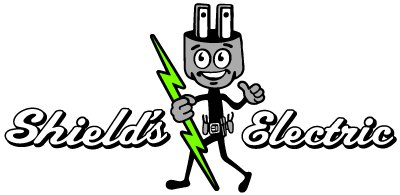What does an electrical contractor do and how does this differ from the position of electrician?
What Is An Electrical Contractor?
Electrical contractors are capable of designing, installing and maintaining electrical systems in both residential and commercial settings. The term is used to describe companies that provide these services, as well as the individual workers performing said tasks.
There are three general classifications of electrical contractors, including:
Inside Electrical Contractors
These electrical contractors manage electrical systems inside buildings. This includes light fixtures, electrical outlets and other various components making up the building’s interior.
Outside Electrical Contractors
As expected, these contractors manage systems found outside the building. Among them are lineworkers, who service both telecommunication and electrical lines.
Integrated Building Systems Contractors
These contractors manage all electrical components in a building’s integrated systems. This can include such components as networks, lighting, access and climate control.
What Does An Electrical Contractor Do?
An electrical contractor’s responsibilities include the following:
- Installing, maintaining and troubleshooting any electrical systems.
- Client relationship management.
- Project management, including plans.
A contractor’s daily activities may vary depending on their specialty and stage of the project they are in charge of. Electrical contractors that are brought in prior to a structure’s construction, might be expected to identify and install the ideal system based on client need. Workers brought in to service an existing structure may wish to upgrade or maintain the existing structure.
Electrical contractors are also responsible for managing their working schedule, ensuring all projects stay on a specific timeline. This undoubtedly requires proficiency in operating subcontractor software.
Electrical Contractor Job Duties
All electrical contractors jobs and duties may differ based on the job requirements within the company. Of course, the electrical project manager is in charge of the big picture. You can expect the project manager to perform the following duties:
- Project Planning: This phase will determine the necessary steps to acquire a permit and complete the job. Timelines and resources will be worked out, as well.
- Distribute Resources: Schedule resources to be available during the appropriate phase of the project.
- Manage Budget: Budget management is crucial towards keeping the project on schedule.
- Manage Relationships: This includes maintaining relationships with both the workers and the customers.
Electrical Contractors Vs Electricians
Now that you have read about the multiple roles of these contractors, you may be wondering whether this role differs from that of an electrician. Typically, the term “electrician” is reserved for an individual who conducts electrical contracting work. The term “electrical contractor”, meanwhile, is used to describe the individual and the company he/she works for.
How Much Does An Electrician Cost?
According to HomeGuide, the average electrician charges $70 per hour. Costs will range from $40-$100 per hour nationwide. You can expect to pay an average of $75 for a call-out fee. Small electrical projects cost between $141-$419, coming out to an average of $280 per job. Hourly rates will depend heavily on the specific project and an electrician’s experience level.
SHIELD’S ELECTRIC IN TEMPE, ARIZONA
Family owned and operated since 1957, Shields Electric, Inc. is one of Arizona’s most experienced electrical contractors. Our commercial, residential and institutional clients benefit from our decades of experience in a wide range of market segments and project types throughout the state of Arizona. Contact us today for a free quote!











